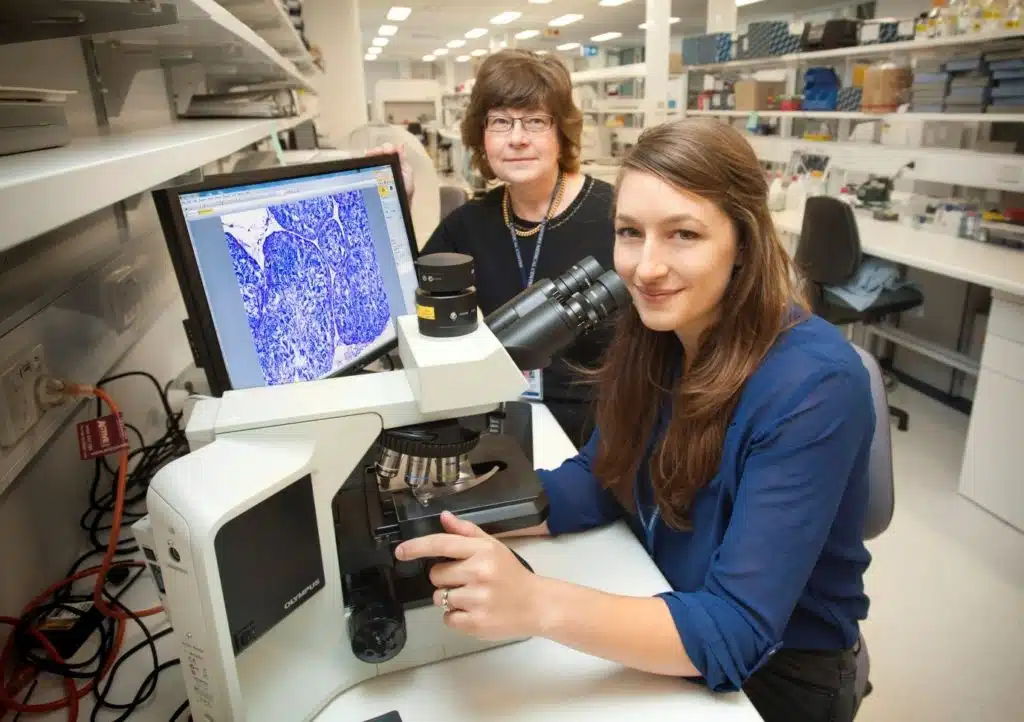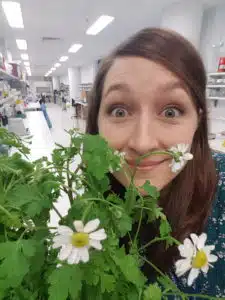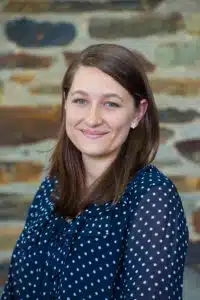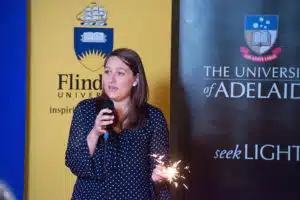A compound derived from feverfew daisies can boost radiotherapy for the treatment of prostate cancer. The compound reduces the therapy’s side effects and increases its cancer-killing ability.
Although radiotherapy to treat prostate cancer can be highly effective, damage to nearby healthy tissues is common. This damage results in debilitating side effects, such as impotence and incontinence.
Research by Katherine Morel from the Flinders Centre for Innovation in Cancer at Flinders University has shown that parthenolide, an anti-inflammatory compound originally identified in feverfew daisies, can stimulate healthy tissues to protect themselves from damage during radiotherapy.
“In mice treated with the compound before radiation therapy, radiation-induced damage in their healthy tissues dropped by more than 70 per cent,” she says.
As an added bonus, the compound simultaneously doubled the ability of the radiotherapy to kill the prostate tumours in mice, by making the cancer cells more susceptible to the treatment.
“These results are exciting and lay the groundwork for future clinical trials,” says Katherine.
“We hope that this compound could both improve survival rates for prostate cancer, as well as protect patients from the unwanted side effects of the treatment.”
Feverfew daisies have long been used as a herbal treatment for migraines and other conditions due to the presence of compounds like parthenolide in the plant. However this treatment uses a highly concentrated form of the compound, the equivalent Katherine says to eating a truckload of the daisies.
While the research is focussed on prostate cancer for now, Katherine says a similar approach could work when using radiotherapy to treat other types of cancer.
Contact: Katherine Morel, Flinders University, katherine.morel@flinders.edu.au
Banner image: Katherine Morel and supervisor Professor Pam Sykes are using a compound from daisies to improve prostate cancer treatments. (Credit: Flinders University)








 Fresh Science is on hold for 2022. We will be back in 2023.
Fresh Science is on hold for 2022. We will be back in 2023.